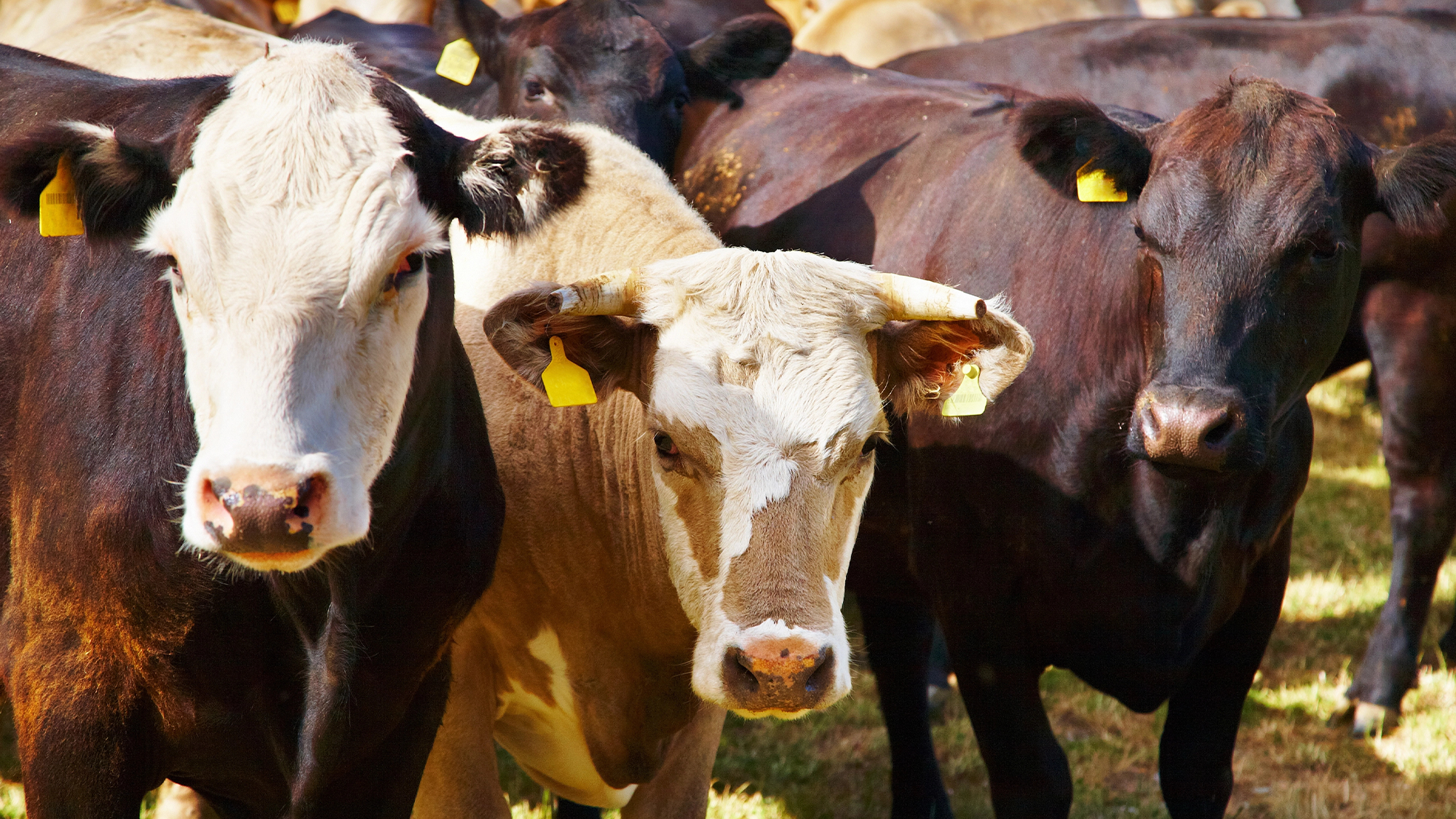Bovine burps and flatulence are an environmental menace. The gasses released by cows and bulls produce large amounts of methane, a greenhouse gas that is more than 28 percent more potent than carbon dioxide at trapping heat in the atmosphere. However, changing up what livestock eat, may alter what comes out of them–for the better. According to a new study, giving grazing beef cattle a seaweed supplement in pellet form reduced methane emissions by almost 40 percent without impacting the animals’ health or weight. The findings are detailed in a study published December 2 in the journal Proceedings of the National Academy of Sciences (PNAS).
Cattle and methane
Feeding and raising livestock accounts for roughly 14.5 percent of global greenhouse gas emissions. Both cow farts and burps produce methane. However, 97 percent of all the methane gas from a cow is actually released by belching rather than farting, according to the United States Dairy Council and NASA. In June, Denmark became the first country to implement an agricultural tax on cow flatulence of 300 kroner ($43) per tonne of methane on emissions from livestock including pigs and cows.
Grazing cattle also tend to generate more methane than feedlot cattle–those raised in fenced areas and fed a high energy diet to increase their weight–or dairy cows because they eat more fiber from grass.
Their high grain and high fiber diets can make bulls and cows particularly gassy. Earlier research found that giving feedlot cattle seaweed cut methane emissions by 82 percent and feeding it to dairy cows reduced it by more than 50 percent. This new study tested seaweed on grazing beef cattle. In the United States alone, there are 9 million dairy cows and over 64 million beef cattle.
“Beef cattle spend only about three months in feedlots and spend most of their lives grazing on pasture and producing methane,” Ermias Kebreab, a study co-author and biologist at the University of California, Davis who specializes in sustainable agriculture, said in a statement. “We need to make this seaweed additive or any feed additive more accessible to grazing cattle to make cattle farming more sustainable while meeting the global demand for meat.”
According to Kebreab, the daily feeding of pasture-based cattle is typically more difficult than feedlot or dairy cows since they graze far from ranches for longer periods of time. However, when grass is scarce or during the winter months, ranchers will often supplement their diets.
Great grazers
In the new study, researchers used a mix of Angus and Waygu cattle breeds. The team divided 24 young neutered male cattle primarily raised for beef–called beef steers into two groups. One group received the seaweed supplement while the other did not. They conducted this 10-week experiment at a ranch in Dillon, Montana where cattle were grazing. Even though the cattle were grazing, they still ate the seaweed supplement voluntarily. The voluntary eating still resulted in a nearly 40 percent drop in emissions.
Earlier research on reducing methane emissions using feed additives for cattle have taken place in controlled environments with daily supplements. According to Kebreab, fewer than half of those methods are effective for grazing cattle.
“This method paves the way to make a seaweed supplement easily available to grazing animals,” said Kebreab. “Ranchers could even introduce the seaweed through a lick block for their cattle.”
[Related: Cow poop might make cleaner hydrogen gas a reality.]
Pastoral farming that includes large grazing systems, supports millions of people around the world, often in areas vulnerable to climate change. The authors suggest that using seaweed supplements like the ones in this study could be one way to make cattle grazing better for the environment. Feeding the world’s cattle seaweed is a bit more expensive and bringing it up to scale since seaweed farming still has to be expanded. However, one study from New Hampshire indicates that some dairy farmers are receptive to the extra costs of roughly 64 cents per day.


